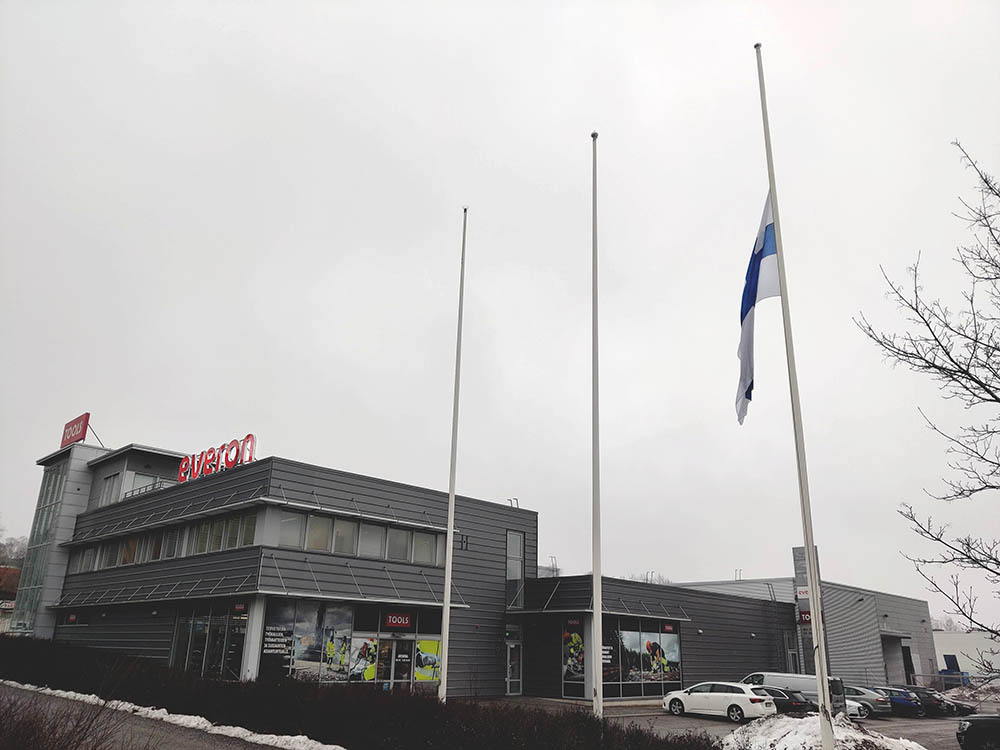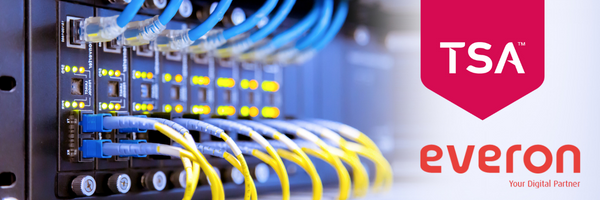Juha Sarsama has been appointed CEO of Everon Group as of July 1, 2023.
Everon is the European market leader in digital grouped living solutions for the elderly. Everon has been providing digital solutions since 2007 in Finland and Sweden and were introduced into the UK in 2019. Our work demonstrates that we can provide tailored solutions that are being used across 70,000+ clients across 3 countries.
Juha Sarsama has a Master of Laws and until recently, worked as the CEO of Ilmatar Energy. Prior to this, Juha worked for several years as the CEO of the Finnish publicly-listed private equity investor Panostaja Oyj. He is also chairman of the board of the publicly listed law firm Fondia Oyj and a member of the board of Business Finland Venture Capital Oy.
Commenting on the appointment, Mika Suomela, chairman of Everon's board and partner of Verso Capital said: "Juha's experience and know-how in managing and growing growth companies into leading international companies in their field is perfectly suited to Everon's rapid growth as one of the leading suppliers of technology solutions for elderly care in Europe”.
Commenting on his appointment Juha Sarsama said: "Everon's solutions enable better living for the elderly. The solutions are also important from the perspective of the national economy due to the growing population of the elderly in the western world. The positive impact of what we’re doing is apparent and I am proud to join Everon's journey and be part of a great organisation".
About Everon
Everon is the European market leader in digital grouped living solutions. Through significant investment in innovation over many years, our flexible, wireless, open platform provides personalised, trusted, and sustainable solutions that enhance life.
Everon uniquely invests 10% of its revenue in research and development pa. All systems can be quickly configured to suit specific client requirements in any care setting including care homes, assisted living, or at home.
Health, housing, and care partners can be reassured of the utmost quality, value for money, and future-proofed investment. With cloud-based, secure data sharing, our systems enable one holistic view and deliver proactive service models.

With the analogue to digital transition well on the way, it is crucial to have a risk register in place.
A risk register is a living document that identifies and assesses potential risks and provides a plan to mitigate them.
The transition from analogue to digital technology presents a number of risks, including data breaches, loss of data, and system downtime. These risks can significantly impact patient care and compromise patient safety. Therefore, having a robust risk register is essential to ensure that risks are identified, assessed, and mitigated to minimize the impact of any potential problems.
In addition to the risks mentioned above, there are other potential risks that must be considered during the analogue to digital transition, such as compatibility issues between different systems, inadequate cybersecurity measures, and human error.
A thorough risk register should take all of these risks into account and provide a plan to mitigate them.
To ensure that the risk register is effective, it should include a detailed analysis of potential risks, their likelihood, and their impact on the system. It should also outline the measures that will be taken to mitigate each risk, the person responsible for implementing these measures, and the timeline for implementation. Furthermore, the risk register should be regularly reviewed and updated to ensure that it remains relevant and up to date.

Here are some of the reasons why a risk register is important. We’ve created an acronym to help (IPMMI):
Overall, a comprehensive and well-maintained risk register is vital during the ongoing transition from analogue to digital. By identifying and assessing potential risks and providing a plan to mitigate them, a risk register can help minimize the impact of potential problems on patient care and safety. This will ensure a smooth transition thereby reducing the likelihood of costly and disruptive problems.
If you would like to speak to Everon about supporting your transition from analogue to digital, you can do so here: https://everon.net/solutions/

It is with great sadness that we must inform you that Markus Merne, Everon’s founder and CEO has passed away following a tragic accident.
Markus was not only a valued colleague and visionary within the assisted living arena, but he was also a friend, whose friendship was valued highly by everyone at Everon UK.
Our thoughts and deepest condolences for this tragic event go out to Markus’s family, friends, and colleagues.

For many users of technology enabled care (TEC), the ability to carry out simple activities like video calling, calling for help following a fall or having the reassurance that someone is on the other end of the line, should they need support can be life changing.
As a result, it is the responsibility of all TEC providers to ensure their customers can transition safely from analogue to digital in a timely fashion. In doing so further highlights their commitment to enable vulnerable users to live as independently as possible within a safe environment.
Disruption to lives
One of the main benefits of digital telecare solutions is their ability to provide personalised support for the elderly, individuals with disabilities, and those with learning difficulties.
Not transitioning safely from analogue to digital poses a risk for all users of these services. For instance, analogue equipment which has not transitioned to digital is less likely to provide 100% reliability and could lead to increasing alarm call failures. This could be life threatening for some users.
Analogue equipment will also see the added challenge of maintenance issues as this equipment will be phased out during the coming years.
The Do’s
Check Reliability
First and foremost, choose a supplier with a track record of delivering high-quality solutions consistently. This will help to ensure that you receive reliable, scalable, and future-proofed digital solutions that meet your unique needs.
The TSA’s recommendation is that all organisations “that supply TEC to their customers should be certified by TEC Quality according to the Quality Standards Framework (QSF)”. To this end, whatever supplier you choose, check that they are committed to high quality and safe services.
Investigate Interoperability
Interoperability continues to be a key aspect of the digital switchover. It is essential to prioritise solutions that are interoperable and can work with other digital systems seamlessly. This will help to ensure that you can integrate your new digital solutions into your existing infrastructure with ease.
In 2021 Everon partnered with national charity Hft. It was important for their support team to have a solution that complimented their existing technology. We were able to personalise our solution to support and enable the individuals to personally develop and learn new tasks.
Just as in the example above, be clear on the level of interoperability you require and check that the supplier you choose can meet your requirements.
Supplier Customer Care
A key aspect of the analogue to digital transition is customer care. It’s crucial to choose suppliers who will prioritise customer care pre and post the digital switchover. This will help to ensure that you receive the support you need during the transition process and beyond.
Communication
With a lot of uncertainty surrounding the digital switchover and how people’s lives may be impacted, communicate regularly with your service users. Keeping them informed through the process will increase their peace of mind.

The Don’ts
Purchase Analogue Systems
By September 2023, Openreach will stop selling analogue phone lines to new customers. As a provider, it is expedient to discontinue the purchase of analogue equipment and channel funds into the purchase of fully digital solutions that are futureproofed and provide value for money. Or in the short to midterm, purchase hybrid solutions whilst a timescale for transition to fully digital solutions can be drawn up.
Defer Key Decisions
A growing concern within the sector is the real risk that many Local Authorities, Housing Associations and Service Providers have left preparations to transition from analogue to digital too late; as a result, increasing the risk to service users.
If you’re yet to take key steps in your analogue to digital transition, the next best time to act is now.
Transitioning from analogue to digital can be a daunting prospect for TEC providers and their service users. However, it's a necessary step to ensure that vulnerable users receive the care they need. With the right supplier, the process can be straightforward and cost-effective.
How can Everon help with your analogue to digital transition?
Everon is the European market leader in digital grouped living solutions. We have a track record of providing digital solutions since 2007 across the Nordics and more recently grouped living and care organisations in the UK. We’re committed to high quality and safe services. As a result, we have been successfully awarded the TSA Quality Standards Framework (QSF) status for the second year running.
Our flexible, wireless, open platform provides personalised solutions that are future-proofed. We continue to build on our experience and excellence by investing heavily in research and development. Our solutions are tried and tested across 70,000+ clients pa.
To find out more about how we can help you transition from analogue to digital technology, visit our website and read the case study.
Frequently Asked Questions (FAQs)
Q: Why is it important to transition from analogue to digital?
A: The transition from analogue to digital is important because analogue technology is becoming outdated, and digital technology offers more benefits, such as increased
reliability, better quality, and greater flexibility. Digital technology also allows for more efficient and cost-effective care, which can benefit both service providers and users.
Q: What challenges can arise during the analogue to digital transition?
A: Some challenges that can arise during the transition include equipment compatibility issues, lack of technical expertise, difficulties in finding reliable suppliers. It's important to address these challenges proactively to ensure a smooth and safe transition.
Q: How can I ensure a safe transition from analogue to digital?
A: Some important steps to ensure a safe transition include choosing a reliable supplier, ensuring interoperability, prioritising customer care, and providing regular communication with service users.
Read the Case Study, here
Find out more about our solutions here